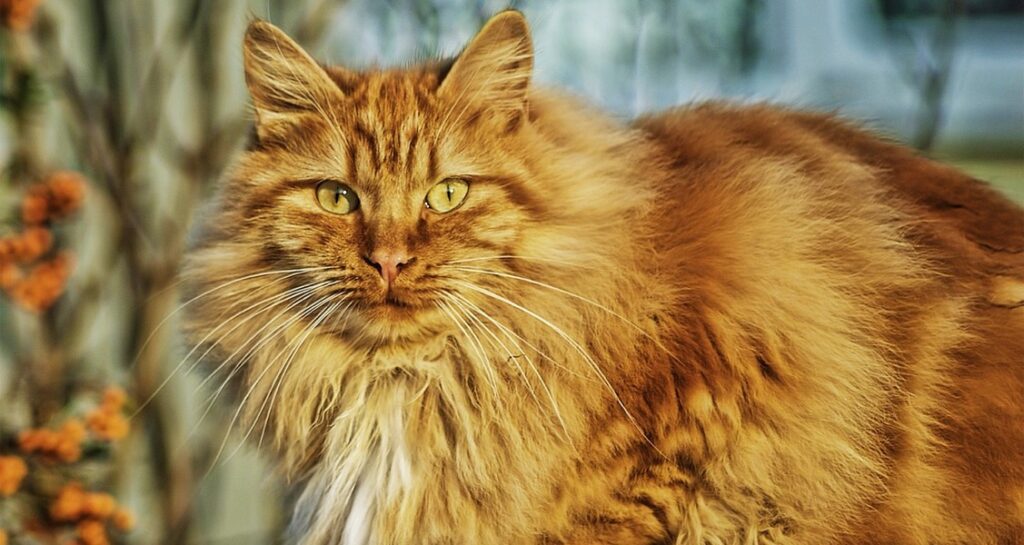Maine Coons are admired for their beauty, size, and gentle personalities, but just like any breed, they come with their own set of health considerations. Known as one of the hardier purebred cats, Maine Coons often enjoy long, happy lives when given proper care. Still, understanding the most common health issues and how to prevent them is an important part of being a responsible owner.
Overall Health and Longevity
Maine Coons are often considered one of the sturdier cat breeds. With proper veterinary care, a balanced diet, and an active lifestyle, they can live well into their teens and sometimes even longer. Their size may make them appear more prone to certain issues, but many Maine Coons enjoy robust health throughout their lives, especially when they come from breeders who prioritize genetic screening.
Genetic Health Concerns
Like all purebred cats, Maine Coons are predisposed to a few inherited conditions. One of the most well-known is hypertrophic cardiomyopathy, or HCM, a type of heart disease that causes the heart walls to thicken. Responsible breeders test their breeding cats for HCM to help reduce the risk of passing this condition down.
Another condition to be aware of is hip dysplasia, more commonly associated with large dog breeds. Because of their size and bone structure, some Maine Coons may develop this issue. It can affect mobility over time, but with weight management, exercise, and veterinary guidance, many cats live comfortably even if diagnosed.
Spinal muscular atrophy (SMA) is another inherited disorder that can affect Maine Coons. While it does not cause pain, it can lead to muscle weakness and reduced mobility. Thankfully, DNA testing has made it possible for breeders to avoid passing this trait to kittens.
Nutrition and Weight Management
Maine Coons are large by nature, but owners need to be cautious about distinguishing between healthy size and obesity. Carrying excess weight can put strain on their joints and worsen conditions like hip dysplasia. A diet that is high in protein, balanced in nutrients, and appropriate for their life stage is essential for long-term health. Many owners find that scheduled feeding, instead of free-feeding, helps maintain a healthy weight.
Because Maine Coons are active and playful well into adulthood, they also benefit from enrichment that keeps them moving. Climbing towers, interactive toys, and even leash training can provide the exercise they need to maintain a healthy body condition.
Grooming and Coat Health
The luxurious coat of a Maine Coon is one of its most striking features, but it does require attention. While their fur is less prone to matting than some long-haired breeds, regular brushing helps prevent tangles, reduces shedding, and keeps their skin healthy. Grooming also provides an opportunity to check for skin irritations, parasites, or unusual lumps that may require veterinary attention.
Routine grooming has the added benefit of strengthening the bond between cat and owner, as Maine Coons generally enjoy the extra attention.
Dental and Preventive Care
Dental health is sometimes overlooked in cats, but it is crucial for Maine Coons. Plaque buildup and gum disease can lead to more serious health issues if left untreated. Regular brushing, dental treats, or professional cleanings recommended by a veterinarian can go a long way in maintaining good oral health.
Annual veterinary visits are equally important. Even healthy Maine Coons benefit from routine checkups, which allow veterinarians to catch potential problems early and keep vaccinations up to date. Preventive care is always more effective than treatment after a problem develops.
Emotional and Behavioral Wellbeing
Health is not just physical. Maine Coons are intelligent, social cats that thrive on companionship and stimulation. A lack of interaction can lead to stress, which in turn may affect overall health. Ensuring they have both human companionship and environmental enrichment is part of keeping them well. A mentally engaged Maine Coon is more likely to live a balanced, healthy life.
Final Thoughts
Maine Coons are resilient cats with a reputation for robust health, but responsible ownership means being aware of potential concerns and addressing them proactively. With regular veterinary care, proper nutrition, grooming, and plenty of attention, these gentle giants can enjoy long, fulfilling lives.
